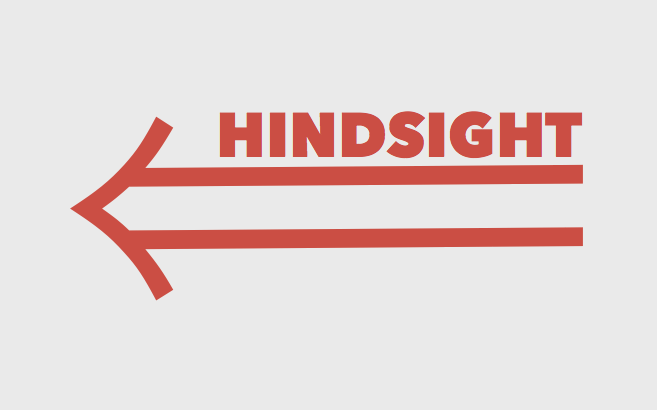Hindsight 3: Half a Hindsight

Hindsight 3
One of the rules I set for myself with Hindsight is that it’s not enough for me to find great articles that are one year old, but I have to actually read them. On a day to day basis I have no compunctions about linking to stories that look good that I may not have read all the way through, the idea being “here is something I think looks interesting and maybe you will, too” as opposed to “this is a fully vetted story.” But Hindsight is meant to be different.
This week I couldn’t find the time to sit myself down and read the articles I had planned on publishing in Hindsight 3. More accurately I didn’t find the time; I probably could have. As a result I don’t have a fully fleshed out edition this week.
But I want to talk a bit about what that means. More than usual this week I felt rushed around, consumed by the Internet, quickly devouring any and all current stories I could. This week was a great reading week for me; I feel rather informed right now. Yet I am overloaded. I started the Hindsight series specifically to get away from this feeling of being overwhelmed.
Still, I think it’s important not to skip a week. In lieu of a full fledged Hindsight I want to share with you just three stories. There’s always next week. And there’s always next year.
Hindsight 3 — September 9 - 15, 2012
“You’re Young. I’m 18. So what?” by Jared Erondu, The Industry, September 14th, 2012
It really amazes me how much the world focuses on one’s age and degree(s). Even more so than skill and personality, the most important factors. But today, for my birthday, I’ll try to debunk the silly notion of age > skill.
In junior high I started a business making photo montages on videotape using PowerPoint. I remember how tough it was to convince people I could reliably deliver a product, how embarrassed I was to take initiative and treat my work like a “real” business.
Erondu expresses everything I felt back then. For his 18th birthday last year, he decided to quit being ashamed of his youth and embrace it. There are great lessons in his piece for readers of any age.
“Beyond the Matrix” by Aleksandar Hemon, The New Yorker, September 10th, 2012
In the Wachowskis’ work, the forces of evil are often overwhelmingly powerful, inflicting misery on humans, who maintain their faith until they’re saved by an unexpected miracle. The story of the making of “Cloud Atlas” fits this narrative trajectory pretty well.
“The Devil on Paradise Road” by Bruce Barcott, Outside, September 12th, 2012
It started as a bluebird New Year’s Day in Mount Rainier National Park. But when a gunman murdered a ranger and then fled back into the park’s frozen backcountry, every climber, skier, and camper became a suspect—and a potential victim.
I didn’t read the above two pieces for the reasons laid out at the top of this piece. I hope to soon and wanted to make sure you, the reader, had the opportunity to check out some (presumably great) pieces from last year.
Until next week…